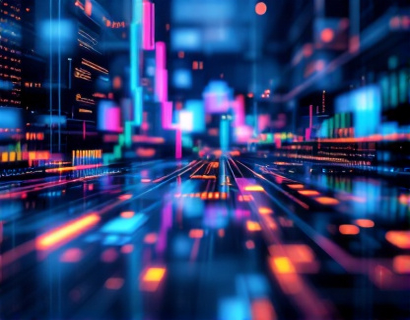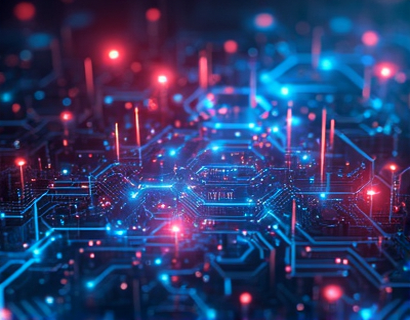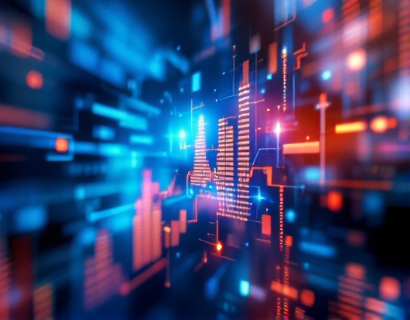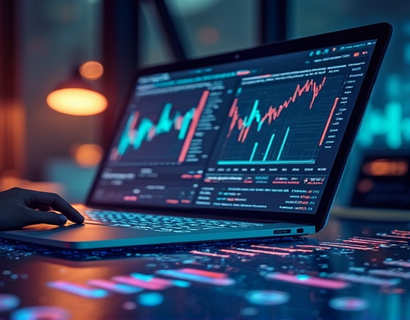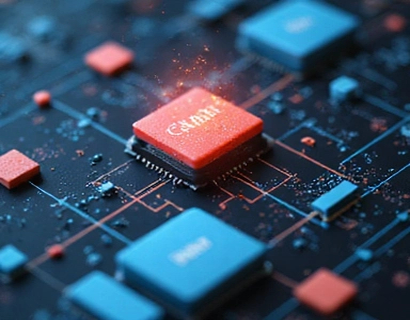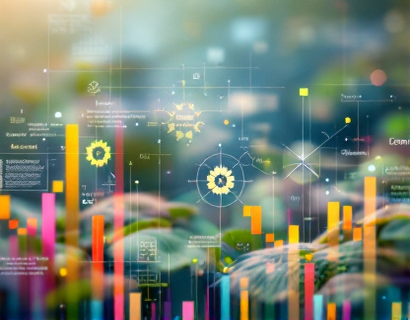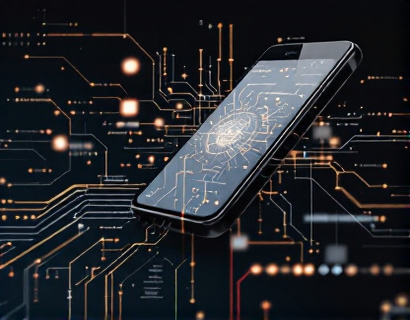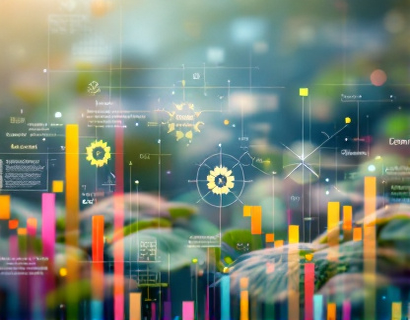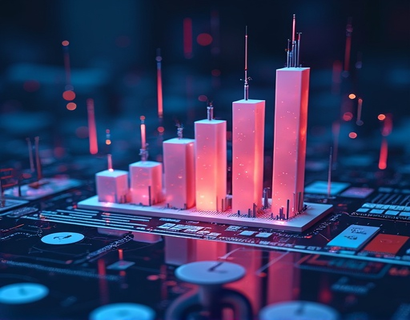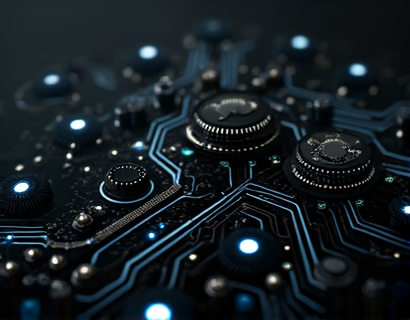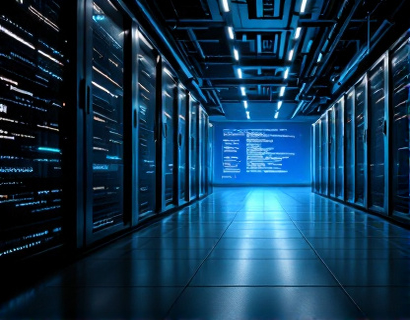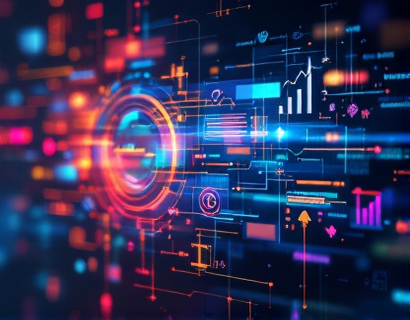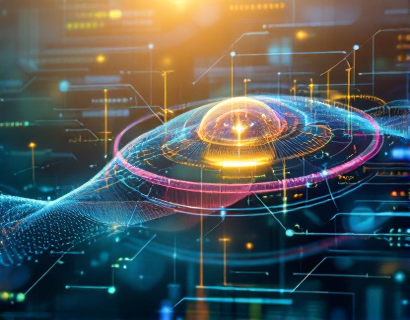Revolutionizing Digital Transformation: The Synergy of Crypto and AI
The intersection of cryptocurrency and artificial intelligence (AI) is paving the way for a new era of digital transformation. This convergence is not just a technological curiosity but a powerful force reshaping how we interact with digital systems and services. As tech enthusiasts and early adopters, understanding this synergy is crucial for grasping the future of innovation. This article delves into the transformative impact of merging these two advanced technologies, exploring the next generation of tech solutions that redefine digital experiences through sophisticated algorithms and blockchain technology.
Foundations of Cryptocurrency and AI
Cryptocurrency, since its inception with Bitcoin in 2009, has revolutionized the financial landscape by introducing a decentralized, secure, and transparent method of transaction. The underlying blockchain technology ensures that transactions are immutable and verifiable without the need for intermediaries. On the other hand, AI has been rapidly advancing, driven by machine learning, deep learning, and neural networks, enabling machines to perform tasks that traditionally required human intelligence.
When these two technologies converge, the potential for innovation becomes immense. AI can enhance the security, efficiency, and functionality of blockchain-based systems, while blockchain can provide a robust and transparent framework for AI applications. This synergy is particularly significant in the context of digital transformation, where organizations are seeking advanced solutions to streamline operations, enhance customer experiences, and gain competitive advantages.
Enhancing Security with AI
One of the primary benefits of integrating AI with cryptocurrency is the enhancement of security measures. Blockchain networks, while secure, are not immune to threats such as 51% attacks, smart contract vulnerabilities, and phishing scams. AI can play a crucial role in detecting and mitigating these risks by analyzing patterns and anomalies in real-time.
Machine learning algorithms can be trained to identify suspicious activities and automate responses to potential threats. For instance, AI-driven systems can monitor transaction patterns and flag unusual behavior, such as multiple failed login attempts or unexpected transfers. This proactive approach to security not only protects users' assets but also builds trust in blockchain-based platforms.
Optimizing Blockchain Performance
Blockchain technology, while revolutionary, faces challenges related to scalability and transaction speed. Traditional blockchain networks like Bitcoin and Ethereum have limited transaction throughput, which can lead to congestion and higher fees during peak usage times. AI can help optimize blockchain performance by predicting network congestion and dynamically adjusting parameters to improve efficiency.
For example, AI algorithms can analyze historical data to predict peak usage periods and adjust block sizes, gas prices, or consensus mechanisms accordingly. This adaptive approach ensures that the network remains responsive and cost-effective, making blockchain solutions more viable for widespread adoption. Additionally, AI can optimize mining processes by predicting optimal times for mining operations, further enhancing the overall performance of the network.
Smart Contracts and AI Integration
Smart contracts, self-executing contracts with the terms directly written into code, are a cornerstone of blockchain technology. However, their functionality can be significantly enhanced by integrating AI. AI can provide the intelligence needed to execute complex logic and make decisions based on real-time data, beyond the predefined rules of traditional smart contracts.
For instance, in supply chain management, AI-integrated smart contracts can automatically trigger actions based on sensor data, such as releasing payments when goods are delivered and verified. This not only streamlines processes but also reduces the need for intermediaries, lowering costs and increasing transparency. The combination of AI and smart contracts opens up new possibilities for decentralized applications (dApps) across various industries, from finance to healthcare.
Personalized User Experiences
AI's ability to analyze vast amounts of data and derive insights makes it an ideal partner for creating personalized user experiences on blockchain platforms. By leveraging user data, AI can tailor recommendations, services, and interfaces to individual preferences and behaviors.
In the context of cryptocurrency, AI can enhance user engagement by providing personalized investment advice, portfolio management, and risk assessment. For example, AI-driven financial advisors can analyze market trends, user profiles, and historical data to suggest optimal investment strategies. This level of personalization not only improves user satisfaction but also increases the adoption and utility of blockchain-based financial services.
Decentralized Finance (DeFi) and AI
Decentralized Finance (DeFi) is a rapidly growing sector that leverages blockchain technology to create financial systems without traditional intermediaries. AI can significantly enhance DeFi platforms by introducing more sophisticated and efficient financial instruments. For instance, AI can be used to develop predictive models for lending and borrowing, optimizing interest rates and credit scoring based on real-time data.
Moreover, AI can help in risk management by identifying potential fraud and market manipulations. By analyzing transaction patterns and user behavior, AI algorithms can detect anomalies and alert users or automate preventive measures. This not only enhances the security of DeFi platforms but also fosters a more trustworthy and reliable ecosystem.
Supply Chain and Logistics
Beyond finance, the integration of AI and cryptocurrency is transforming supply chain and logistics. Blockchain provides a transparent and immutable record of transactions, while AI can optimize various aspects of the supply chain, from inventory management to route planning.
AI algorithms can predict demand, optimize inventory levels, and reduce waste by analyzing historical data and real-time market conditions. When combined with blockchain, these insights can be shared securely and transparently across the supply chain, ensuring all parties have access to the same information. This level of transparency and efficiency can significantly reduce costs and improve service levels.
Additionally, AI can enhance traceability by tracking products from origin to destination, ensuring compliance with regulations and standards. This is particularly important in industries such as pharmaceuticals and food, where safety and authenticity are paramount. Cryptocurrency can facilitate seamless and secure transactions at each stage of the supply chain, further streamlining operations.
Healthcare and Medical Records
The healthcare sector stands to benefit immensely from the synergy of AI and cryptocurrency. Blockchain can provide a secure and decentralized way to store and manage medical records, ensuring privacy and data integrity. AI can enhance this by analyzing medical data to provide insights for diagnosis, treatment, and research.
For example, AI-powered diagnostic tools can analyze patient data, medical images, and genetic information to identify potential health issues early and suggest personalized treatment plans. Blockchain ensures that this data is securely shared among healthcare providers, patients, and researchers, fostering collaboration and innovation. Cryptocurrency can be used to incentivize data contributors and reward healthcare providers for their services, creating a more equitable and efficient system.
Challenges and Considerations
While the potential benefits are significant, the integration of AI and cryptocurrency also presents challenges that must be addressed. One of the primary concerns is regulatory compliance. The decentralized and borderless nature of blockchain and cryptocurrency makes it challenging to navigate varying legal frameworks across different jurisdictions.
Another challenge is the technical complexity involved in developing and maintaining AI-driven blockchain systems. Ensuring interoperability, scalability, and security requires expertise in both AI and blockchain technologies. Additionally, there is a need for standardization to facilitate widespread adoption and integration.
Privacy is another critical issue. While blockchain offers transparency, it can also expose sensitive data. AI can help mitigate this by implementing advanced encryption and privacy-preserving techniques, but it is essential to strike a balance between transparency and privacy.
Future Outlook
The future of digital transformation through the convergence of AI and cryptocurrency is promising. As technology continues to evolve, we can expect more innovative applications across various industries. The development of more sophisticated AI algorithms, advancements in blockchain scalability, and the emergence of new cryptographic techniques will further enhance the synergy between these technologies.
Moreover, the growing awareness and acceptance of blockchain and cryptocurrency among businesses and consumers will drive demand for AI-enhanced solutions. Organizations that embrace this synergy will be better positioned to innovate, compete, and thrive in the digital age.
In conclusion, the integration of AI and cryptocurrency is not just a technological trend but a transformative force that is reshaping the digital landscape. By leveraging the strengths of both technologies, we can create more secure, efficient, and personalized digital experiences that drive meaningful change.



